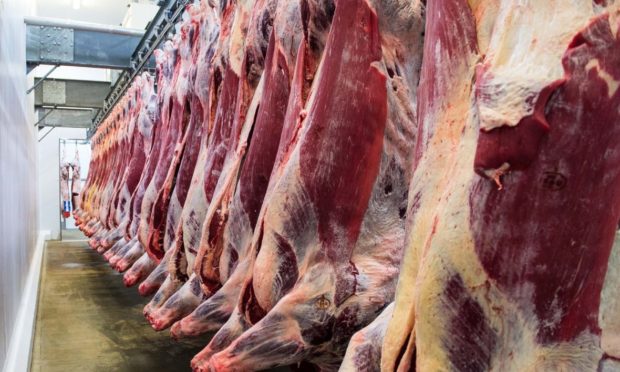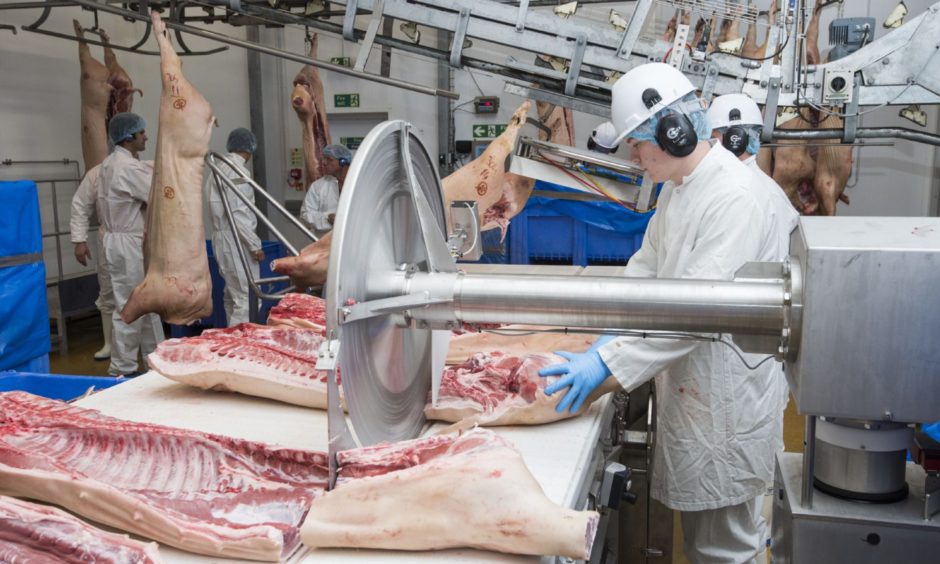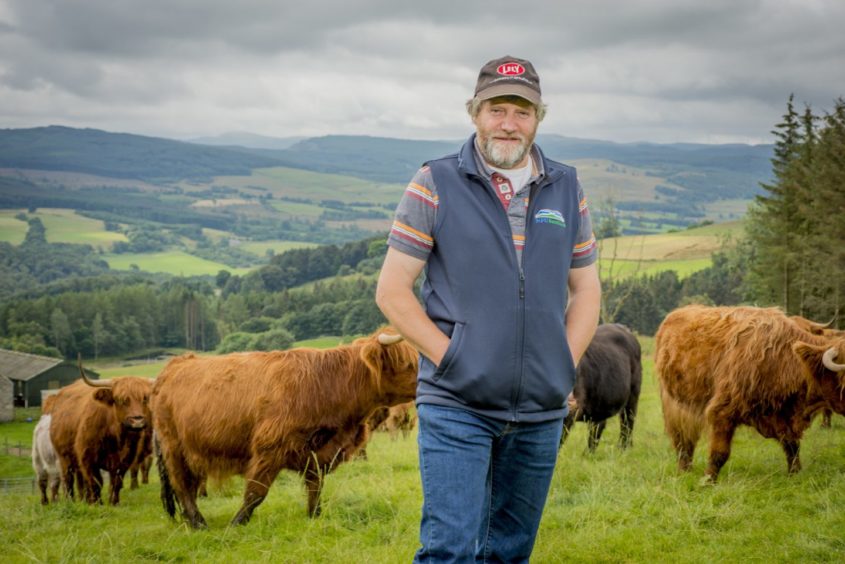The UK Government has defended its post-Brexit immigration rules after criticism from meat industry leaders who are facing a shortage of staff in their plants.
Meat processors have warned of shortages of products, including pigs in blankets at Christmas time, due to staffing challenges.
Both the Scottish Association of Meat Wholesalers (SAMW) and the British Meat Processors Association (BMPA) have blamed the UK Government’s immigration policies for staff shortages in abattoirs and meat plants.
BMPA chief executive, Nick Allen, said that on average BMPA members are around 12-13% short on staff, while SAMW executive manager Martin Morgan said the association had been raising concerns about staff shortages for months.
Mr Morgan said: “The UK Government’s immigration rules are stifling our industry’s ability to recruit the number of skilled staff we require to meet retail and consumer demand.
“Member companies are seeking to recruit new staff from mainland Europe because there are simply not enough skilled people available to us within the British labour pool.”
Responding to the concerns, a Home Office spokesman said the UK Government’s points-based immigration system provided for a number of eligible occupations within the meat processing sector, subject to the rules and requirements of the system being met.
He added: “We want to see employers make long-term investments in the UK domestic workforce instead of relying on labour from abroad and our Plan for Jobs is helping people across the country retrain, build new skills and get back into work.
“The Government encourages all sectors to make employment more attractive to UK domestic workers through offering training, careers options, wage increases and to invest in increased automation technology.”
The Home Office said it had run a £3 million awareness campaign last year for UK employers, to inform them that freedom of movement was ending and they may need to take steps to adapt their recruitment practices.
The Scottish red meat processing sector’s reliance on foreign labour was laid bare in the latest Red Meat Industry Profile report from red meat levy body Quality Meat Scotland.
The report reveals 47% of the staff working at abattoirs and meat processing companies in Scotland hail from outside the UK.
It estimated 3,000 people worked across 21 red meat abattoirs in Scotland in 2020, and primary red meat processing generated £815 million of revenue and paid more than £77m in salaries.
Meanwhile, NFU Scotland has written to the UK Government calling for immediate action to tackle the labour crisis.
The union’s president, Martin Kennedy, said: “A shortage of both permanent and seasonal workers, combined with a lack of haulage drivers and processing staff, is seriously impacting agricultural, food and drink businesses across Scotland.
“The implications of this ongoing shortage for business and the economy have been steadily building and the impact can no longer be absorbed by farmers and the food and drink industry. The ramifications are already in plain sight, focussed on empty supermarket shelves, and the impacts are now being felt by consumers.”
He added: “NFU Scotland calls on the UK Government to take immediate action on labour to ensure that agriculture can continue to sustainably produce high quality food and drink for our country and our exports.
“This is vital for our farmers, rural communities, the wider supply chain and for our consumers.”


